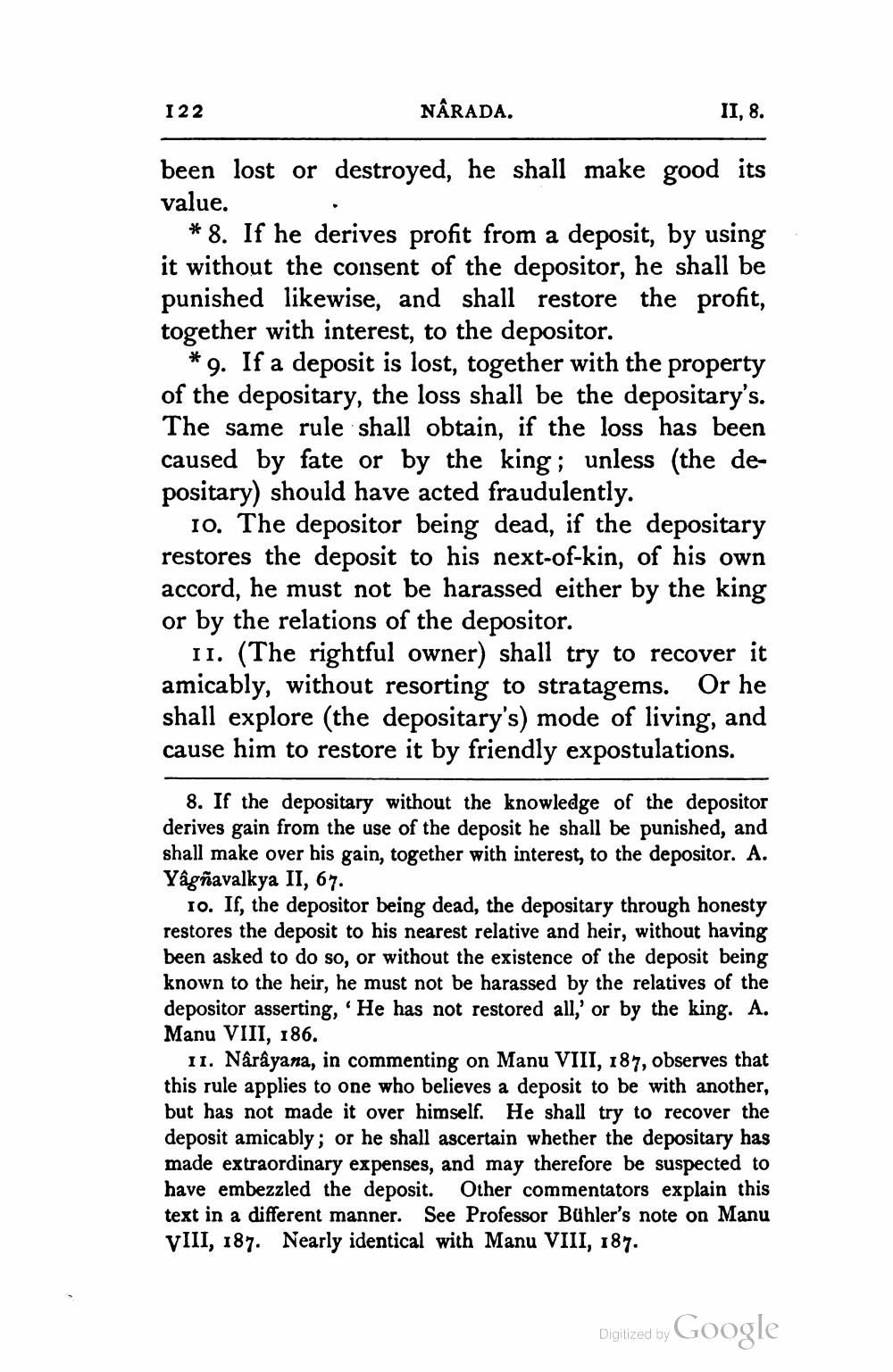________________
I 22
NÂRADA.
II, 8.
been lost or destroyed, he shall make good its
value.
* 8. If he derives profit from a deposit, by using it without the consent of the depositor, he shall be punished likewise, and shall restore the profit, together with interest, to the depositor.
* 9. If a deposit is lost, together with the property of the depositary, the loss shall be the depositary's. The same rule shall obtain, if the loss has been caused by fate or by the king; unless (the depositary) should have acted fraudulently.
10. The depositor being dead, if the depositary restores the deposit to his next-of-kin, of his own accord, he must not be harassed either by the king or by the relations of the depositor.
11. (The rightful owner) shall try to recover it amicably, without resorting to stratagems. Or he shall explore (the depositary's) mode of living, and cause him to restore it by friendly expostulations.
8. If the depositary without the knowledge of the depositor derives gain from the use of the deposit he shall be punished, and shall make over his gain, together with interest, to the depositor. A. Yâgñavalkya II, 67.
10. If, the depositor being dead, the depositary through honesty restores the deposit to his nearest relative and heir, without having been asked to do so, or without the existence of the deposit being known to the heir, he must not be harassed by the relatives of the depositor asserting, 'He has not restored all,' or by the king. A. Manu VIII, 186.
11. Narayana, in commenting on Manu VIII, 187, observes that this rule applies to one who believes a deposit to be with another, but has not made it over himself. He shall try to recover the deposit amicably; or he shall ascertain whether the depositary has made extraordinary expenses, and may therefore be suspected to have embezzled the deposit. Other commentators explain this text in a different manner. See Professor Bühler's note on Manu VIII, 187. Nearly identical with Manu VIII, 187.
Digitized by Google




